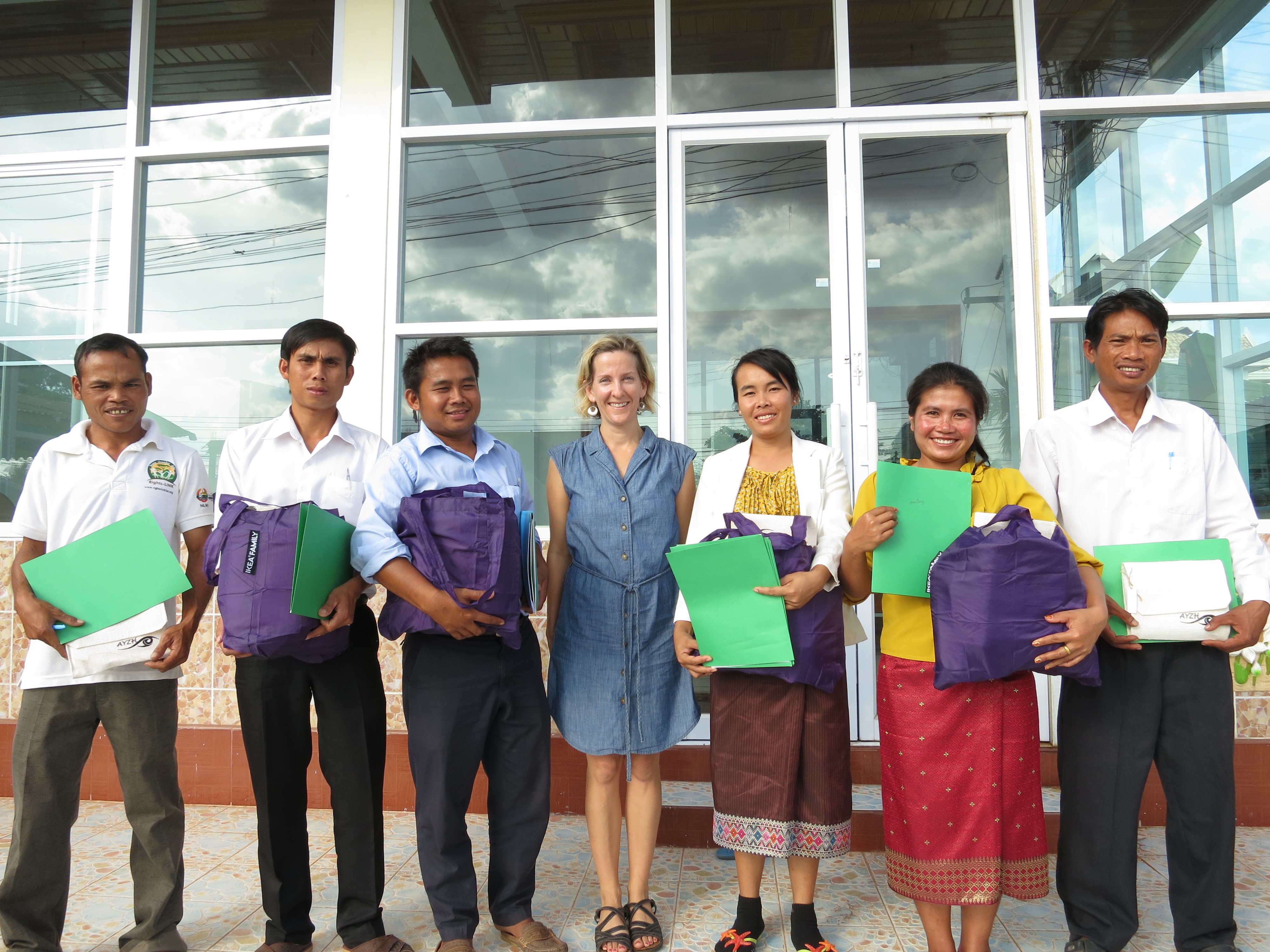
It took me 48 hours to get to Thailand, due to a delayed flight, and I was worse for the wear on arrival. En route from Thailand to Laos, my stomach hurt from travel-induced anxiety, malaria pills were causing another kind of digestive distress and I was sleep-deprived. Plus, I didn’t really know where I was going: a cell phone number from my Lao partner organization, OVC, was my only information. Arriving in the Thai-Lao border town, Pakse, I obsessively dialed my contact for hours until she answered. Much to my relief, she picked me up and drove me from Pakse to Salavan, where OVC is based.
My first day in Salavan, I knew that the stress and discomfort of travel were well worth it. I saw immediately, that the directors of OVC, Nong and Nyai, were women that I could work with. They are efficient, hard-working, committed and generous. For more than 10 years, they have been providing medical, educational and agricultural support to ethnic minorities in this remote region. They believe in empowering the local people: seven of OVC’s staff of twelve live in the communities and are ethnic minorities themselves.
The morning after I arrived, we kicked off the Clean Birth Kits training. Nong and Nyai had decided that the Clean Birth Kits Pilot Project should initially target four community clinics in Tahoy District, home to the Tahoy people. The Tahoy live deep in the forest and their religious beliefs lead women to give birth alone. OV hopes that in addition to providing life-saving supplies, women and families will be educated about the need to assist laboring mothers.
Four nurses, a District Health official, and OVC staff members traveled for hours on motorbike to attend the training. They were all-business and ready to learn. There was none of the giggling or unquestioning nods that I experienced working with Burmese or Khmer health workers. During the 8 hours we worked together, they asked questions, challenged ideas, and helped adapt the program to match needs on the ground. I was impressed with their professionalism and commitment to introducing Clean Birth Kits, which they agreed “the mothers would be happy to use.
In the days after the training, we visited the nurses’ at their clinics. They are in dire need of supplies. These clinics have little to offer in terms of medicines, equipment consists of wood slat beds, and refrigeration was not available.
The Clean Birth Kits Project will enable nurses to provide women with birthing supplies to be used at the clinic or at home. CleanBirth.org also funds the nurses’ travel to the most remote villages, 5-8 hours by motorcycle. They will bring birth kits and provide educational sessions to people who have never stepped inside a clinic.
Having the support of the nurses, the government (District Health official) and OV staffers, who will oversee the pilot project is crucial and I have it. I trust that they will execute the program.
CleanBirth.org has committed 1,200 birth kits and community outreach support to these clinics. Each kit costs $5. Please consider a donation: www.cleanbirth.org/donation. All of your money goes directly to the communities. CleanBirth.org has no salaried employees.
In the next installment, we head into the villages to see mothers and children. Stay tuned.
Leave a Reply